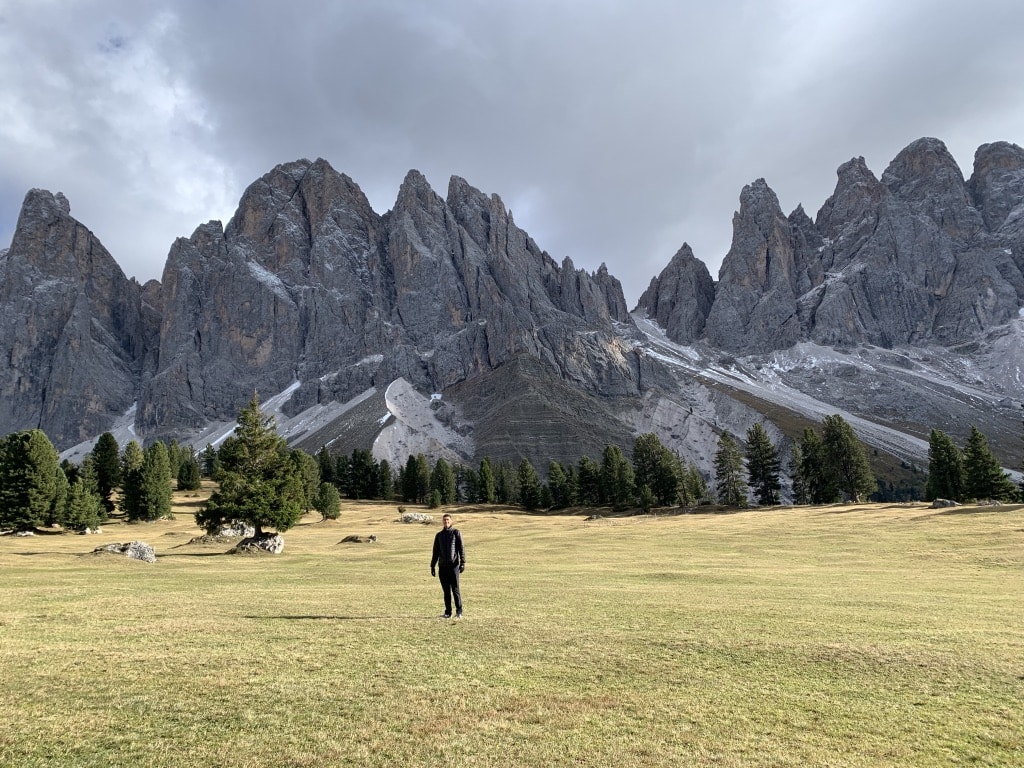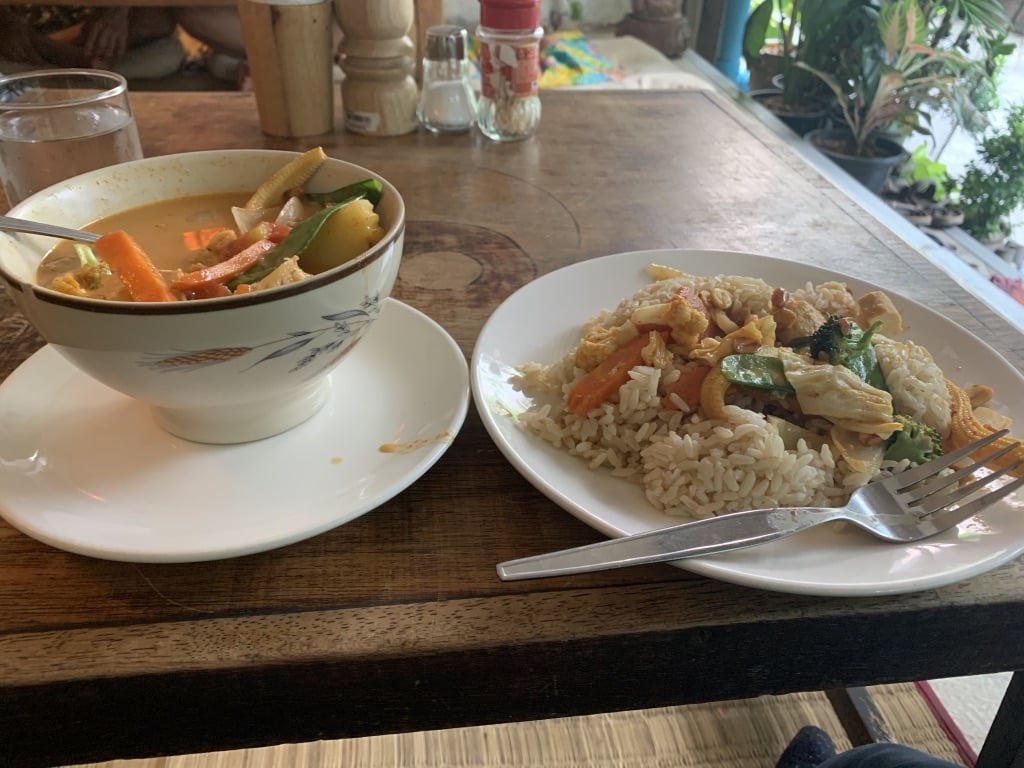We’ve all heard time and time again about how traveling can be transformative. It’s all too easy to have rose-colored glasses on with all of the positive travel content out there. However, how much do we really hear about the challenges?
To be clear, I think everyone who has the means should give backpacking a chance. On the other hand, I don’t think a balanced view of traveling is often presented. Safety concerns are often exaggerated but other downsides don’t get as much attention. So, here are a few things to be consider before you head on your next adventure.
Environmental Impact
Traveling obviously comes with financial costs but the environmental costs are often forgotten or ignored. One nonstop flight from New York to London is estimated to burn nearly a ton of fuel..per passenger!
Google Flights now shows your personal CO2 emissions now for a given flight and the results are staggering to see. Having a layover, of course, means extra emissions and I’ve started thinking twice about using them to save money.
Air travel is definitely wasteful but, to be fair, it is only responsible for about two percent of global emissions. In reality, just 100 companies are responsible for 71% of global emissions so framing this as a problem of individual choice isn’t at all fair. However, given the climate crisis, I do try to be aware of my impact.
Driving, especially in the USA, is often the only means to get to certain destinations. That certainly comes at an environmental cost. Taking buses, trains and other forms of public transit whenever possible is a good way to reduce your footprint.
Loneliness
Traveling can be transformative in the sense that it can expose us to new things. The experiences, people, cultures, food and ideas you’ll encounter will shape you. Travel is often glamorized and I’m definitely not blameless in that. However, it is not the wonderland that it is often made out to be.
When you travel you’re still you, just in a different place. To be fair, it is definitely easier to open up to other people when you only expect to see them for a short period of time.
Even so, don’t expect long term travel to change you, cure your broken heart or depression. A change of scenery can serve as a nice distraction but your problems may very well exist post-trip.
When you’re alone on the road it is hard to run away from yourself, which can also be seen as a positive. In the right headspace, solitude can provide a lot of perspective that you may not get otherwise.
Regardless, there are some downright difficult and lonely days while traveling. On my two-month Asia trip, I avoided hostels for the first week because they seemed overwhelming and I wanted get on a good sleep schedule. While I definitely adjusted quickly, I was astounded how much I was in my own head and craving interaction by the end.
That loneliness drove me to do something my reserved self never would have done previously. I chatted up two strangers on a bus who I ended up getting drinks with and traveling with for the next week. So, the loneliness can definitely be a positive or negative, depending on how you deal with it.

Support For Your Travels
Friends and family will probably see your first backpacking trip as exciting. It’s certainly not culturally expected to make that your lifestyle though.
If you want to travel long term, don’t be surprised when people around you aren’t the most understanding or supportive. There may be lingering questions of what your plan is, with the implication that you don’t have your life together.
In time, you learn to deal with it and realize that lots of people won’t understand. That’s okay.
If you’re able to support yourself while traveling, it only has to make sense to you. The people who care about you will most likely come around.
There is a lot of societal pressure to conform but I think the most rewarding experiences come from trusting your instincts. It’s difficult but I’m happier when I don’t let others’ opinions affect my choices. It’s helpful to remember that we’re all on our own paths because comparing yourself to other people isn’t going to end well.
The world is a different place than our parents’ and the rise of digital nomadism is a testament to that. There are a lot of people, myself included, who see the opportunities that remote work can afford and don’t want the 9-5 life.
The COVID pandemic has ravaged the world but one of the positives to come out of it is more remote opportunities. Working remotely/freelance can allow people to have more control of their time and be more mobile. It shifts the balance of power to workers ever so slightly.
Know that making travel a full-time lifestyle might ruffle a few feathers. If you really want it, there’s nothing wrong with sticking to your guns. Just don’t be shocked when there’s pressure to do otherwise.
Healthy Eating/Dietary Restrictions
Sure, it’s possible to eat healthy while traveling. That’s especially true if you’re cooking your own food. A big part of the fun for me, though, is sampling the local cuisine.
Unfortunately when eating out, you can’t know for sure what’s in your food. Whether that’s excess salt, sugar or something else, it’s not super easy to eat healthy in a lot of places. Also if you’re a vegan or vegetarian it may be very difficult to eat local cuisine, especially in certain countries.
My neighbor in Italy was a vegan and when he ate out his options consisted of bread, pastas and pizza without cheese. That’s only slightly an exaggeration. Food options while traveling are definitely a concern if you have allergies or are on a diet.
To solve this when I travel, I typically like to stay in places that I know will have refrigerators. That way I can supplement my diet with fresh fruits and vegetables.
There’s also no need to eat every single meal out, especially if you’re traveling for a long time. Meals you can whip up from the grocery store are often healthier and more budget-friendly than eating out. They can even taste just as good!

Pressure To Do Everything
Most of the time, I like to do a little bit of research about where I’m going before I get there. I usually save a handful of places on google maps before I get to a city or country so I can try to check them out when I’m there.
However, that can easily lead to the feeling of having to check everything off of the list. Viewing traveling as a list of things to do tends to ruin it for me and doesn’t typically allow for improvisation or deviation from plans.
Honestly, the best times I’ve had traveling have been when I’ve had no set plan. My first backpacking trip was chock full of sightseeing and led to the next item on the list, burnout. I learned from my mistakes and had absolutely no plan in Asia and it worked out well.
I was able to travel with new friends that I met along the way, say yes to a spontaneous motorbike trip in Laos and relax when I needed to. The most enjoyable trips I’ve been on are when I’ve had time to relax and let go of the notion that I need to see everything. I figure that might be the case for others too.
Burnout
Relatedly, burnout is a big concern when constantly moving from place to place. This was one of the biggest lessons from my first ever backpacking trip.
In 2018, I went to more than 10 European countries in the span of just over a month and ending up coming home early. It was a rookie mistake to try to move around so much.
I had no semblance of a routine and didn’t allow myself much time for relaxation. It was 100 MPH at nearly all times and endless sightseeing. Retrospectively, I see how I missed out on the best parts of traveling.
Wandering around off of the beaten path and soaking in the atmosphere just wasn’t very much on my mind at the time. I definitely regret it as that’s what makes travel more than just a carefully curated product and so enjoyable, for me at least.
It’s easy to start losing your bearings and get physically sick after nonstop travel. The best way to counter burnout is to listen to what your body is telling you.
There’s (almost) always another opportunity to come back to a certain place at some point in the future. So, taking a day to just relax at a coffeeshop or stay in your hotel/hostel isn’t a big deal.
I used to have the mindset that if I wasn’t doing something everyday that I wasn’t making the most of my vacation. Thankfully, I’ve since grown out of that.
I have certain things that I like to do regardless of where I am like exercising, reading and blogging and constant sightseeing can interfere with that.
Now, I prefer to stay in most places I go for at least three nights, if not longer. That helps me to avoid burnout and not worry about packing up every day.
In Sum
My intention is not at all to drive people away from long term travel, quite the opposite. There are a million and one reasons why you should travel.
I just wish I had seen a rundown of both the positives and negatives of what to expect before I set out on my first big trip.